AHA Scientific Sessions 2024 Late-Breaking and Featured Science Collection
Published: 29 October 2024
-
Views:
 2109
2109
-
Likes:
 7
7
-
Views:
 2109
2109
-
Likes:
 7
7
-
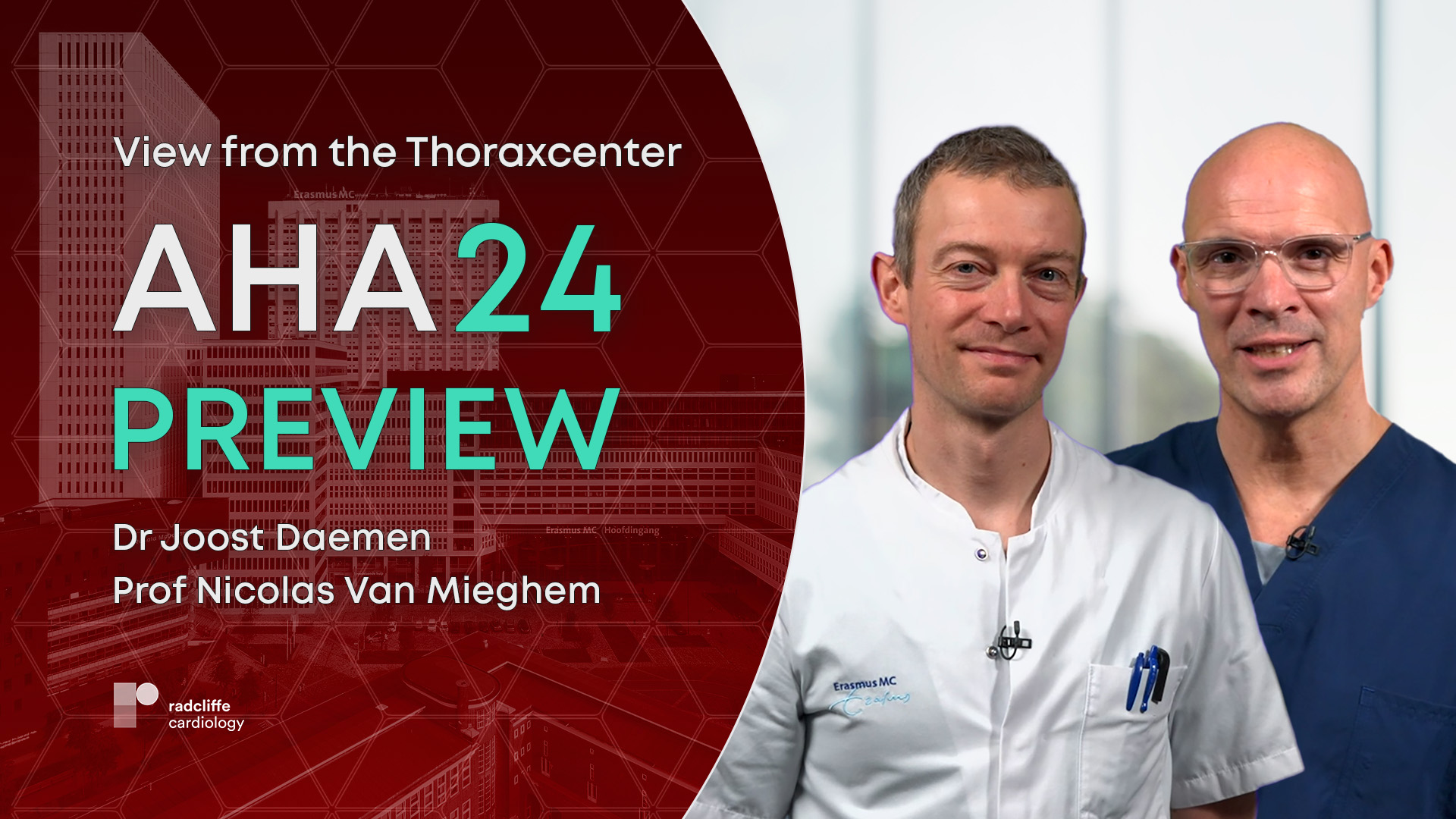 13m 43sPart 1 View from the Thoraxcenter: AHA 24 Late-breaking Preview Joost Daemen, Nicolas M Van Mieghem
13m 43sPart 1 View from the Thoraxcenter: AHA 24 Late-breaking Preview Joost Daemen, Nicolas M Van Mieghem
-
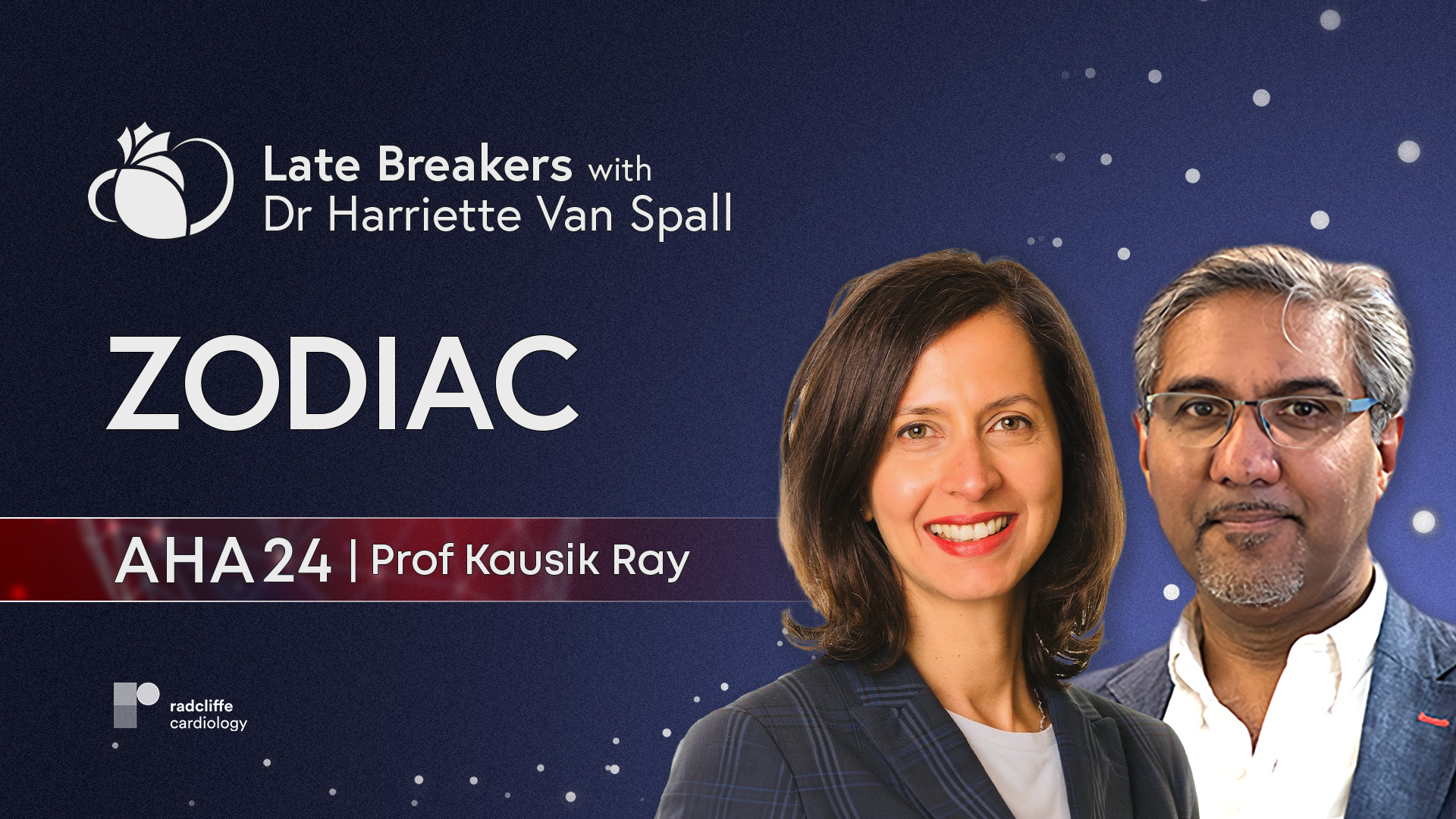 29m 32sPart 2 | Session 1 ZODIAC: Decision Support System to Aid Optimization of Early Lipid Lowering Therapies After ACS Harriette Van Spall, Kausik Ray
29m 32sPart 2 | Session 1 ZODIAC: Decision Support System to Aid Optimization of Early Lipid Lowering Therapies After ACS Harriette Van Spall, Kausik Ray
-
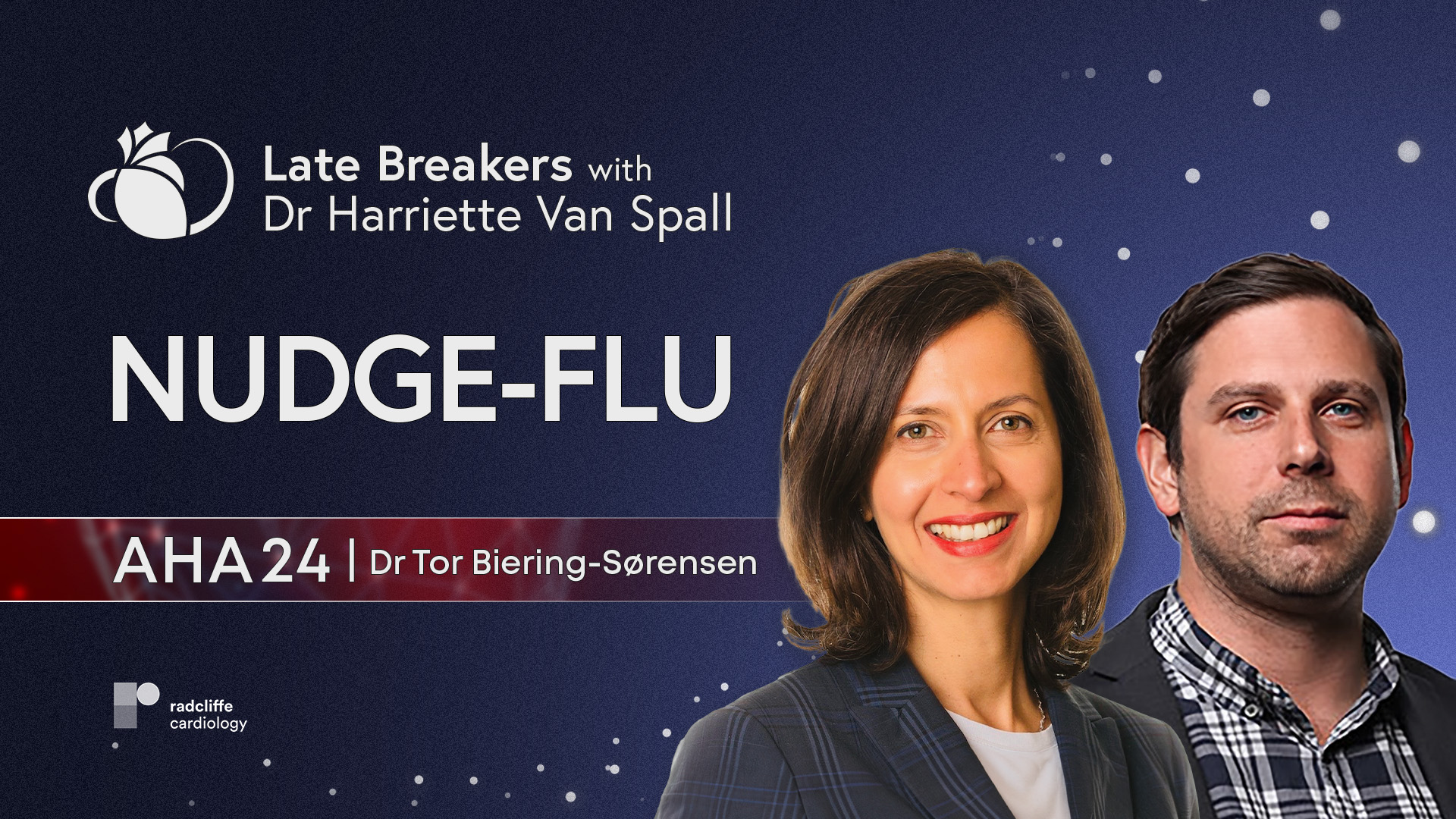 18m 41sPart 2 | Session 2 NUDGE-FLU: Electronic Nudges to Increase Influenza Vaccination in Patients with MI Harriette Van Spall, Tor Biering-Sørensen
18m 41sPart 2 | Session 2 NUDGE-FLU: Electronic Nudges to Increase Influenza Vaccination in Patients with MI Harriette Van Spall, Tor Biering-Sørensen
-
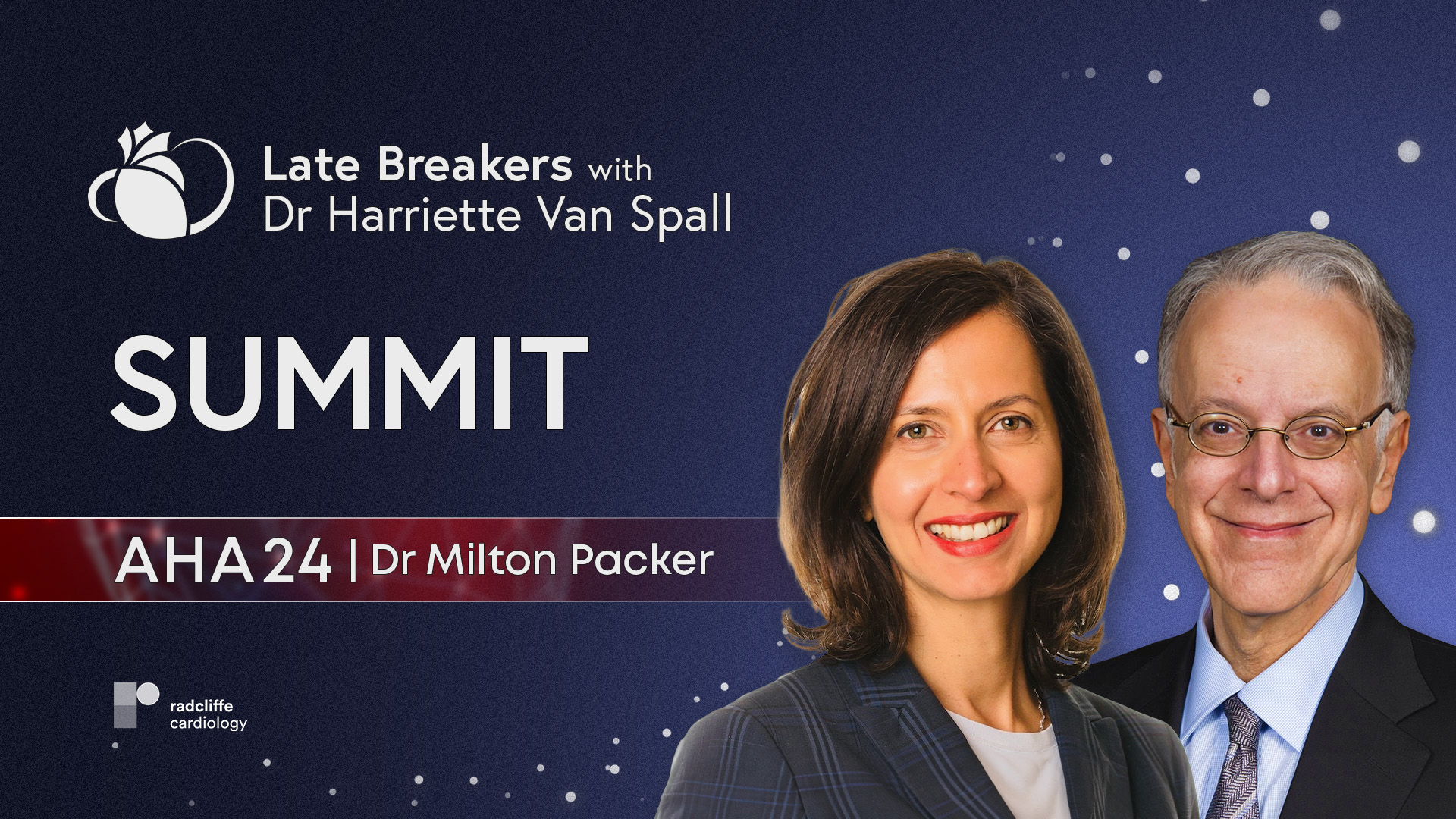 17m 22sPart 2 | Session 3 SUMMIT: Tirzepatide in Patients with HFpEF and Obesity Harriette Van Spall, Milton Packer
17m 22sPart 2 | Session 3 SUMMIT: Tirzepatide in Patients with HFpEF and Obesity Harriette Van Spall, Milton Packer
-
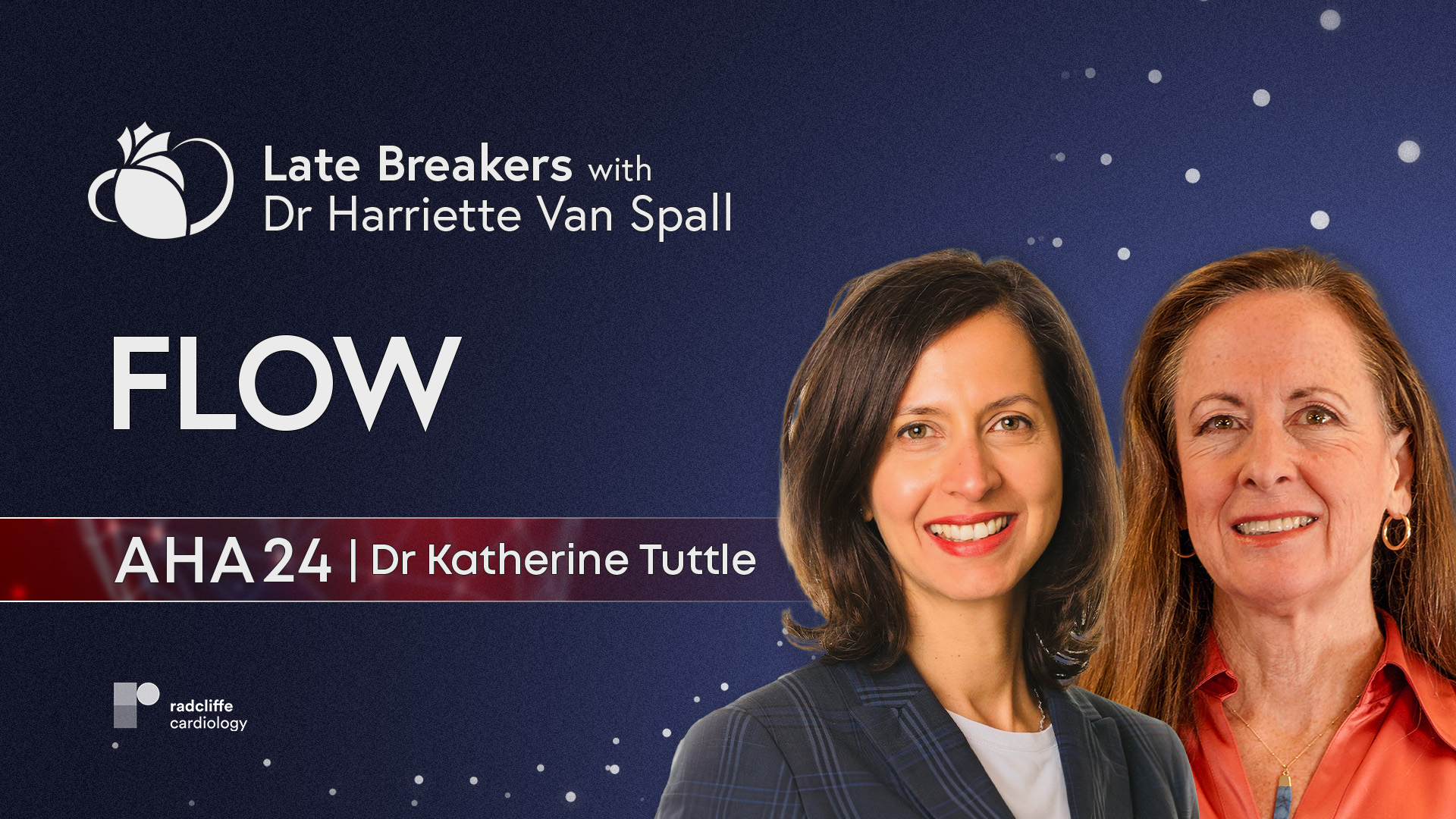 16m 57sPart 2 | Session 4 FLOW: Benefits of Semaglutide on CKD by Cardiovascular Status or Risk Harriette Van Spall, Katherine Tuttle
16m 57sPart 2 | Session 4 FLOW: Benefits of Semaglutide on CKD by Cardiovascular Status or Risk Harriette Van Spall, Katherine Tuttle
-
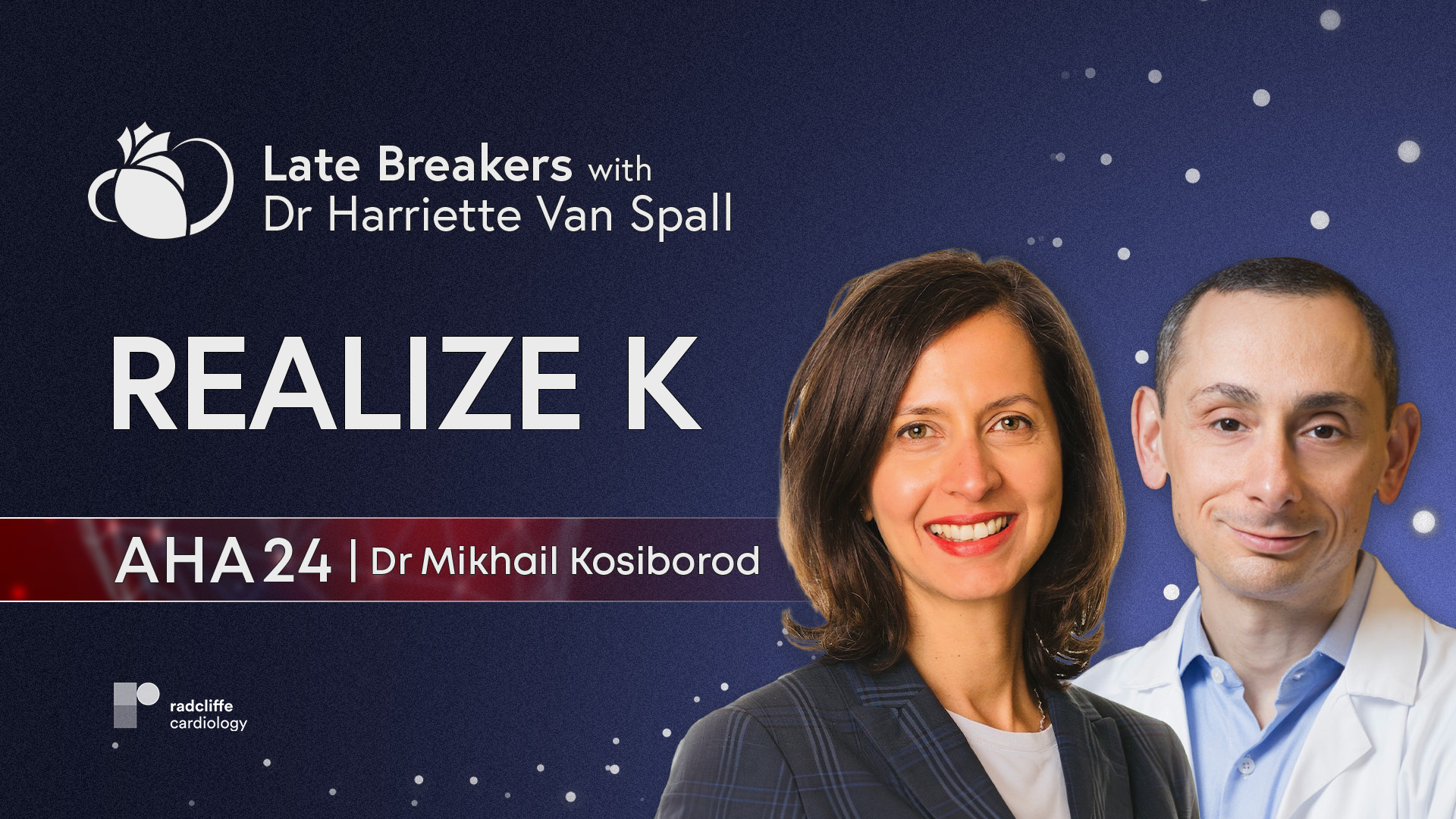 22m 30sPart 2 | Session 5 REALIZE-K: Efficacy and Safety of SZC in Patients with HFrEF Receiving Spironolactone Harriette Van Spall, Mikhail Kosiborod
22m 30sPart 2 | Session 5 REALIZE-K: Efficacy and Safety of SZC in Patients with HFrEF Receiving Spironolactone Harriette Van Spall, Mikhail Kosiborod
-
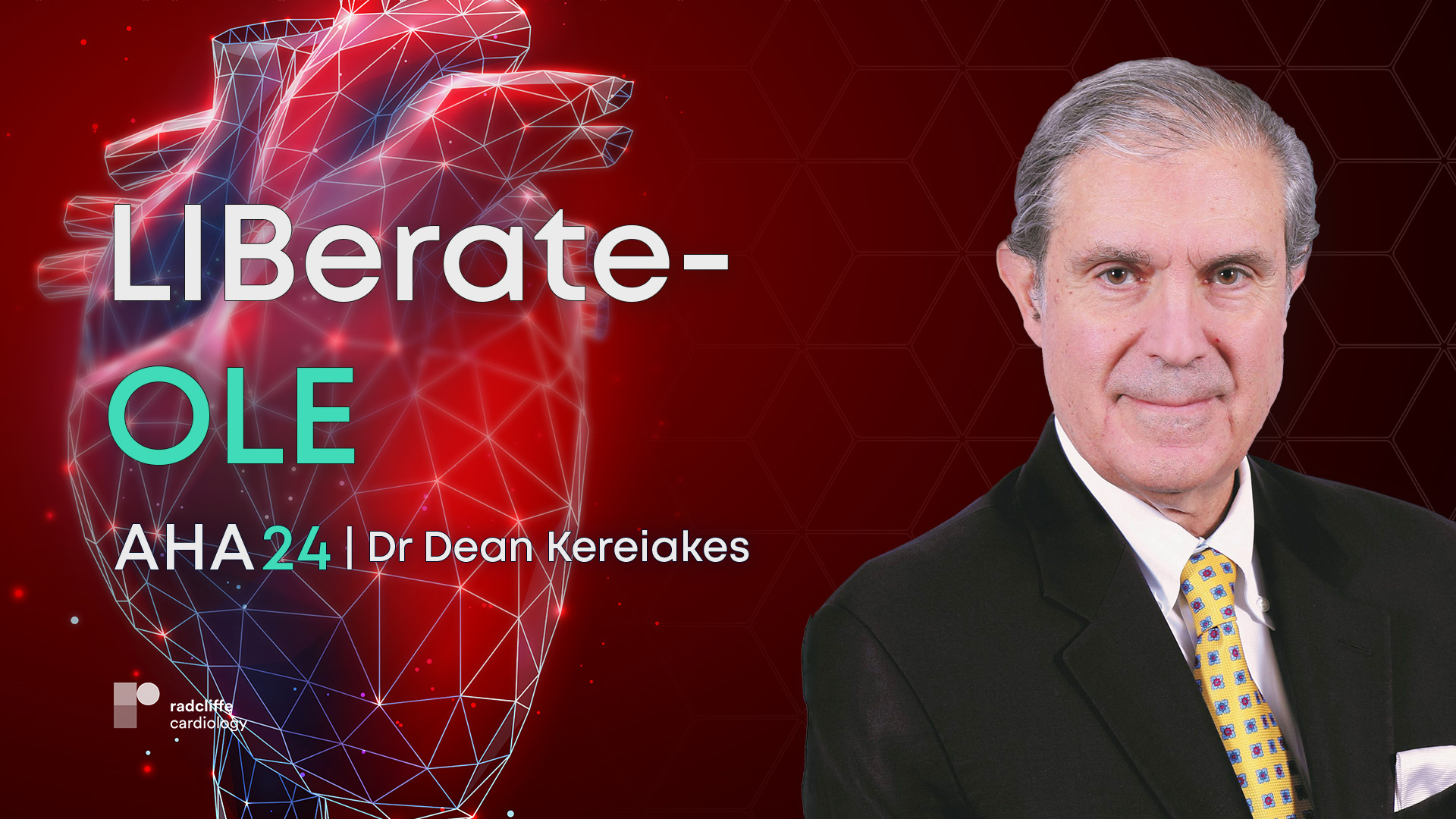 6m 17sPart 3 | Session 1 LIBerate-OLE: Long-Term Efficacy of Lerodalcibep in Patients at High Risk for CVD Dean J Kereiakes
6m 17sPart 3 | Session 1 LIBerate-OLE: Long-Term Efficacy of Lerodalcibep in Patients at High Risk for CVD Dean J Kereiakes
-
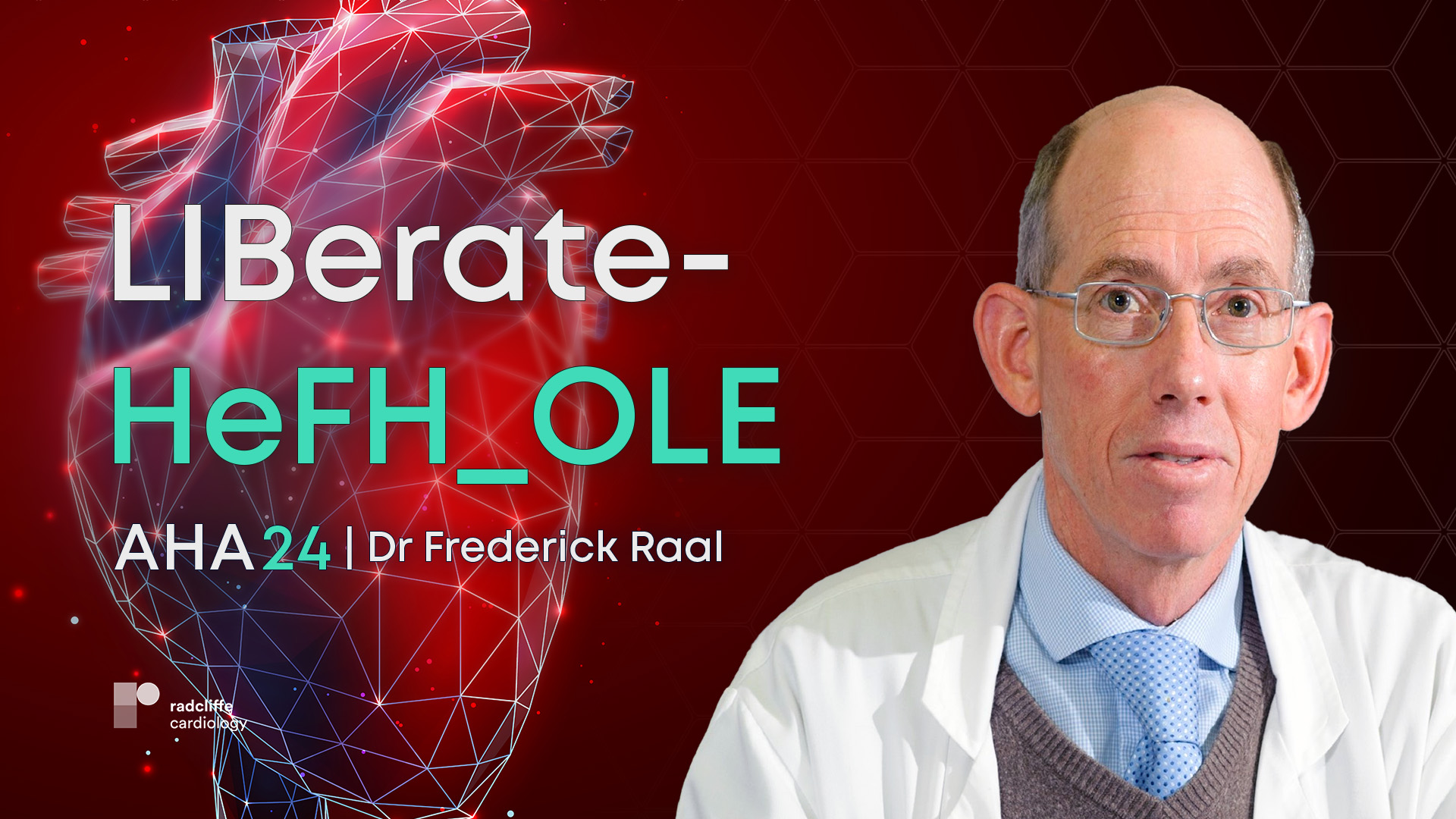 3m 53sPart 3 | Session 2 LIBerate-HeFH_OLE: Lerodalcibep in Heterozygous Familial Hypercholesterolemia Frederick Raal
3m 53sPart 3 | Session 2 LIBerate-HeFH_OLE: Lerodalcibep in Heterozygous Familial Hypercholesterolemia Frederick Raal
-
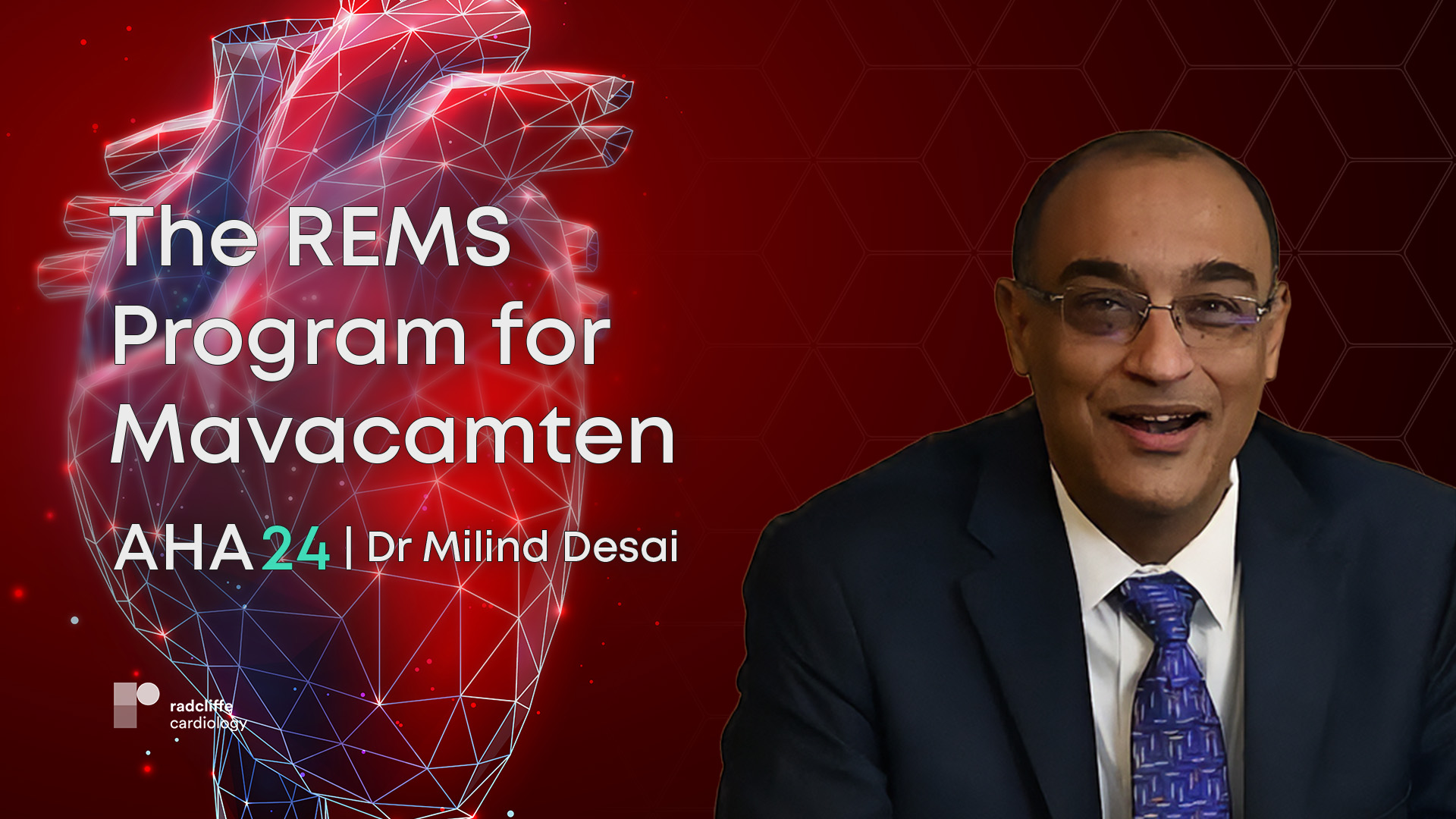 7m 19sPart 3 | Session 3 Mavacamten: Real-World Experience from 22 Months of the REMS Program Milind Y Desai
7m 19sPart 3 | Session 3 Mavacamten: Real-World Experience from 22 Months of the REMS Program Milind Y Desai
-
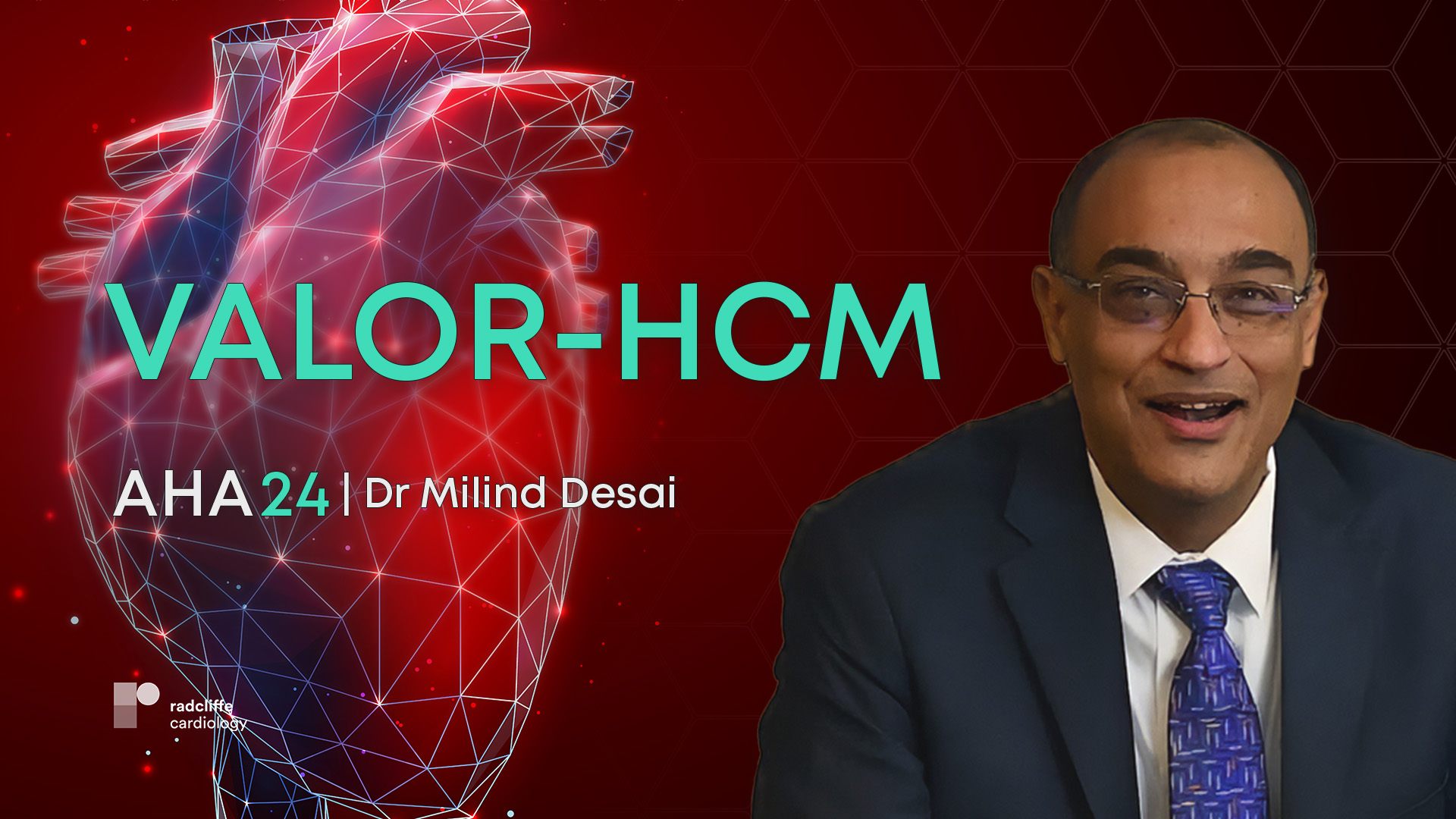 10m 31sPart 3 | Session 4 VALOR-HCM: Mavacamten in Patients with Obstructive HCM Referred for Septal Reduction Therapy Milind Y Desai
10m 31sPart 3 | Session 4 VALOR-HCM: Mavacamten in Patients with Obstructive HCM Referred for Septal Reduction Therapy Milind Y Desai
-
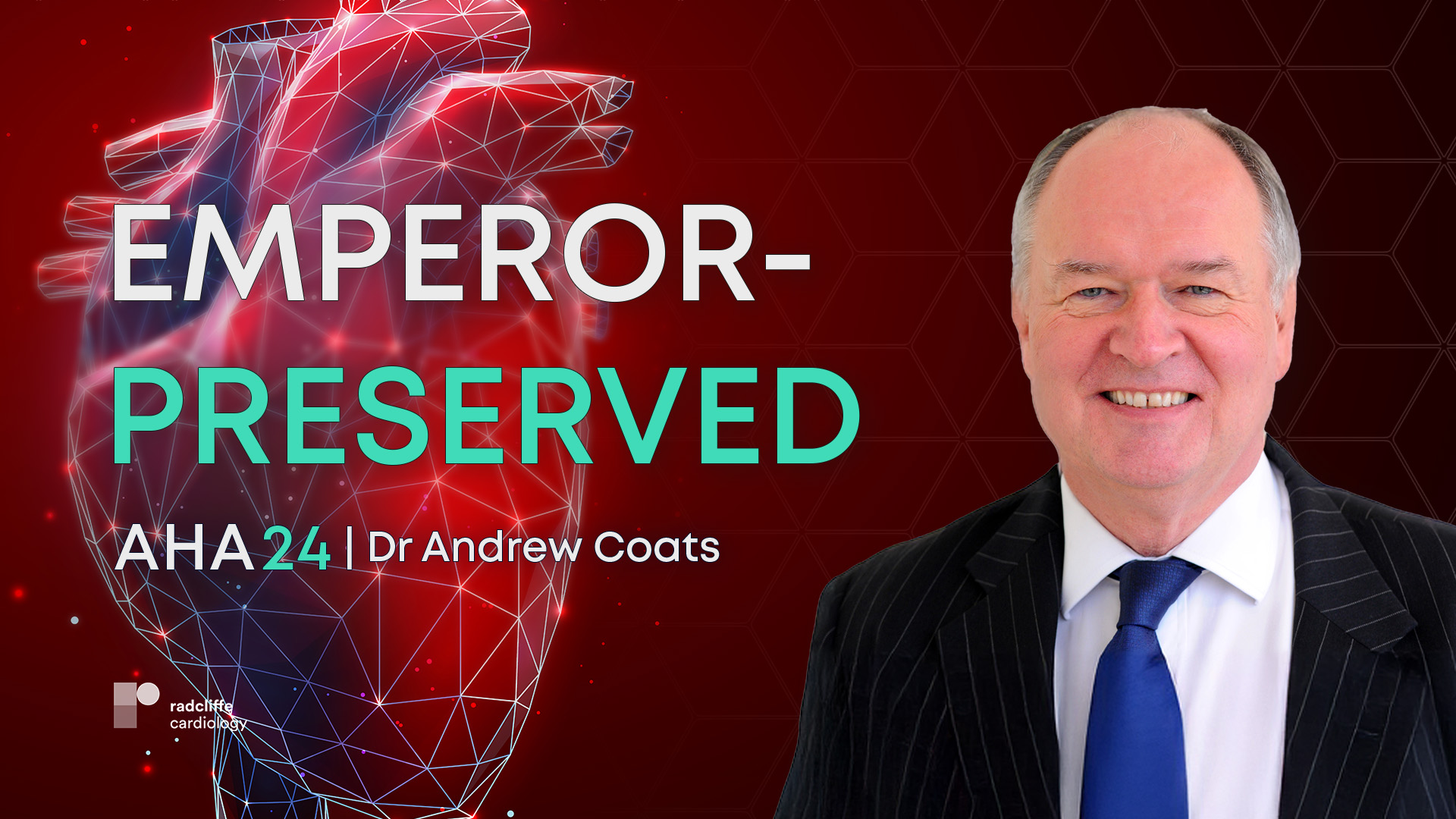 4m 41sPart 3 | Session 5 EMPEROR-Preserved: Diastolic Dysfunction and Empagliflozin in Heart Failure Andrew JS Coats
4m 41sPart 3 | Session 5 EMPEROR-Preserved: Diastolic Dysfunction and Empagliflozin in Heart Failure Andrew JS Coats
-
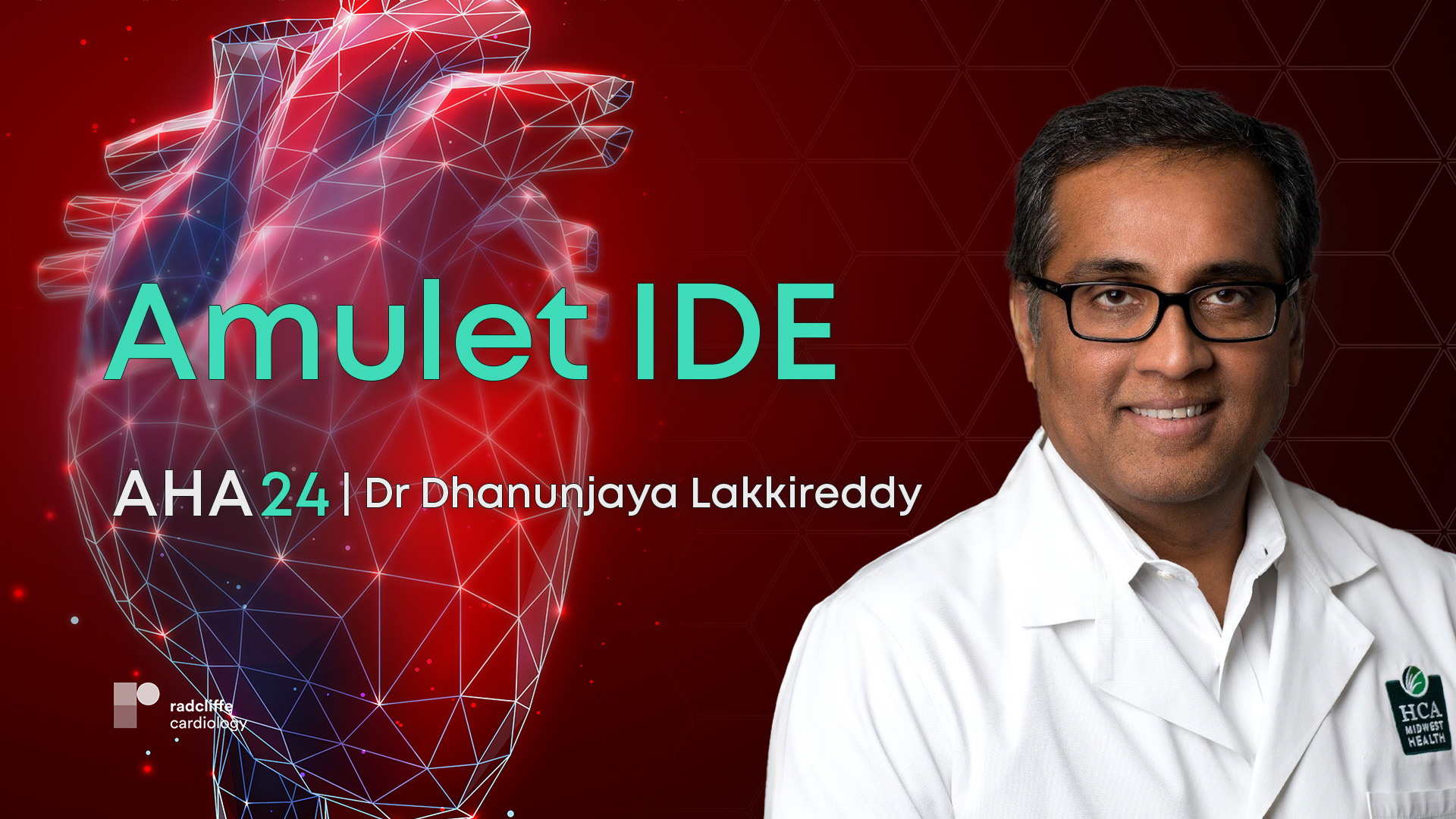 6m 53sPart 3 | Session 6 Amulet IDE: The AMPLATZER Amulet Left Atrial Appendage Occluder Five-Year Results Dhanunjaya Lakkireddy
6m 53sPart 3 | Session 6 Amulet IDE: The AMPLATZER Amulet Left Atrial Appendage Occluder Five-Year Results Dhanunjaya Lakkireddy
-
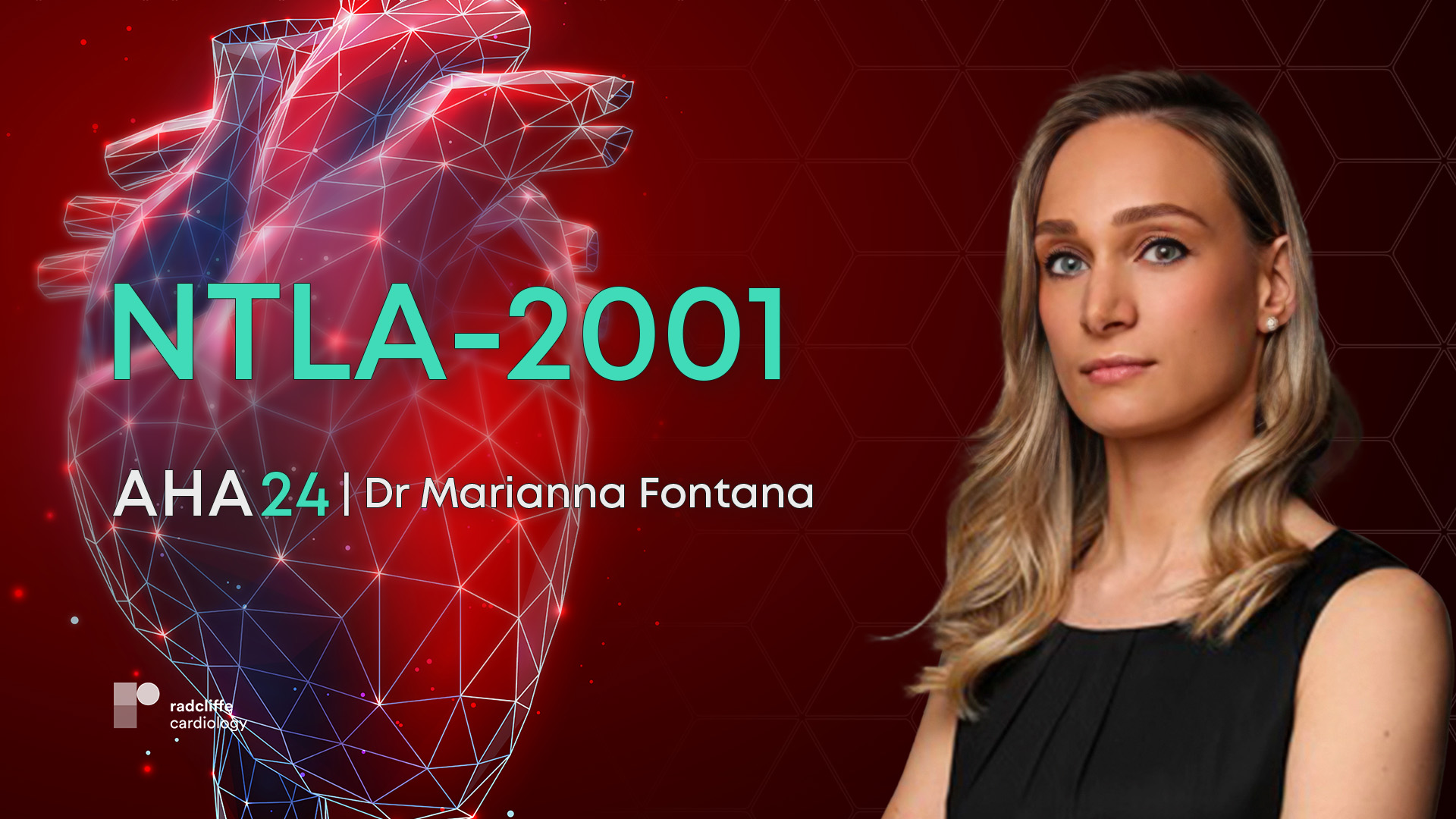 5m 6sPart 3 | Session 7 NTLA-2001 in Patients with Transthyretin Amyloidosis with Cardiomyopathy Marianna Fontana
5m 6sPart 3 | Session 7 NTLA-2001 in Patients with Transthyretin Amyloidosis with Cardiomyopathy Marianna Fontana
-
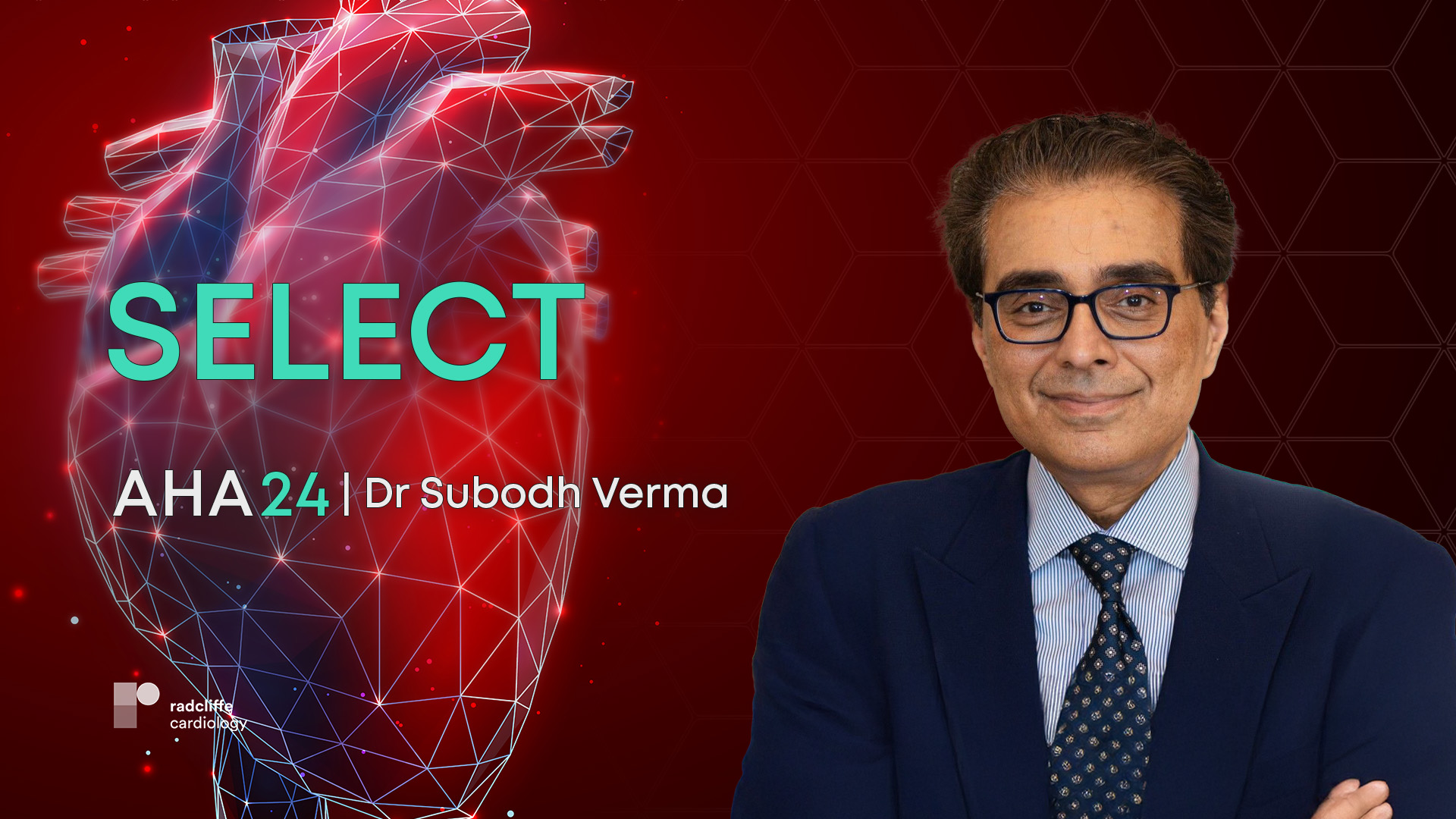 5m 7sPart 3 | Session 8 SELECT: Semaglutide in Obese and Overweight Patients with a History of Coronary Artery Bypass Surgery Subodh Verma
5m 7sPart 3 | Session 8 SELECT: Semaglutide in Obese and Overweight Patients with a History of Coronary Artery Bypass Surgery Subodh Verma
-
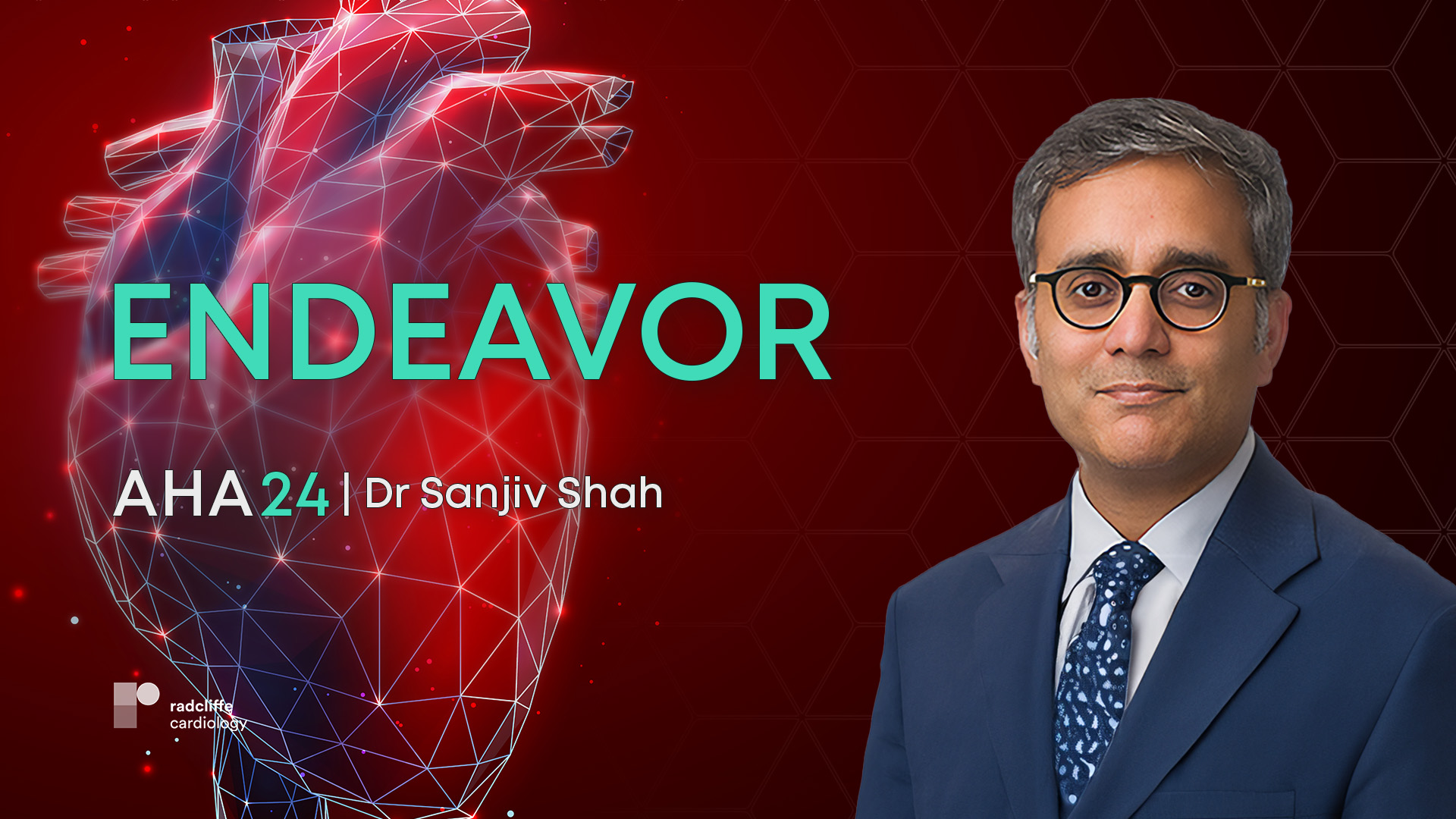 4m 30sPart 3 | Session 9 ENDEAVOR: Myeloperoxidase Inhibition with Mitiperstat in HFpEF Sanjiv Shah
4m 30sPart 3 | Session 9 ENDEAVOR: Myeloperoxidase Inhibition with Mitiperstat in HFpEF Sanjiv Shah
-
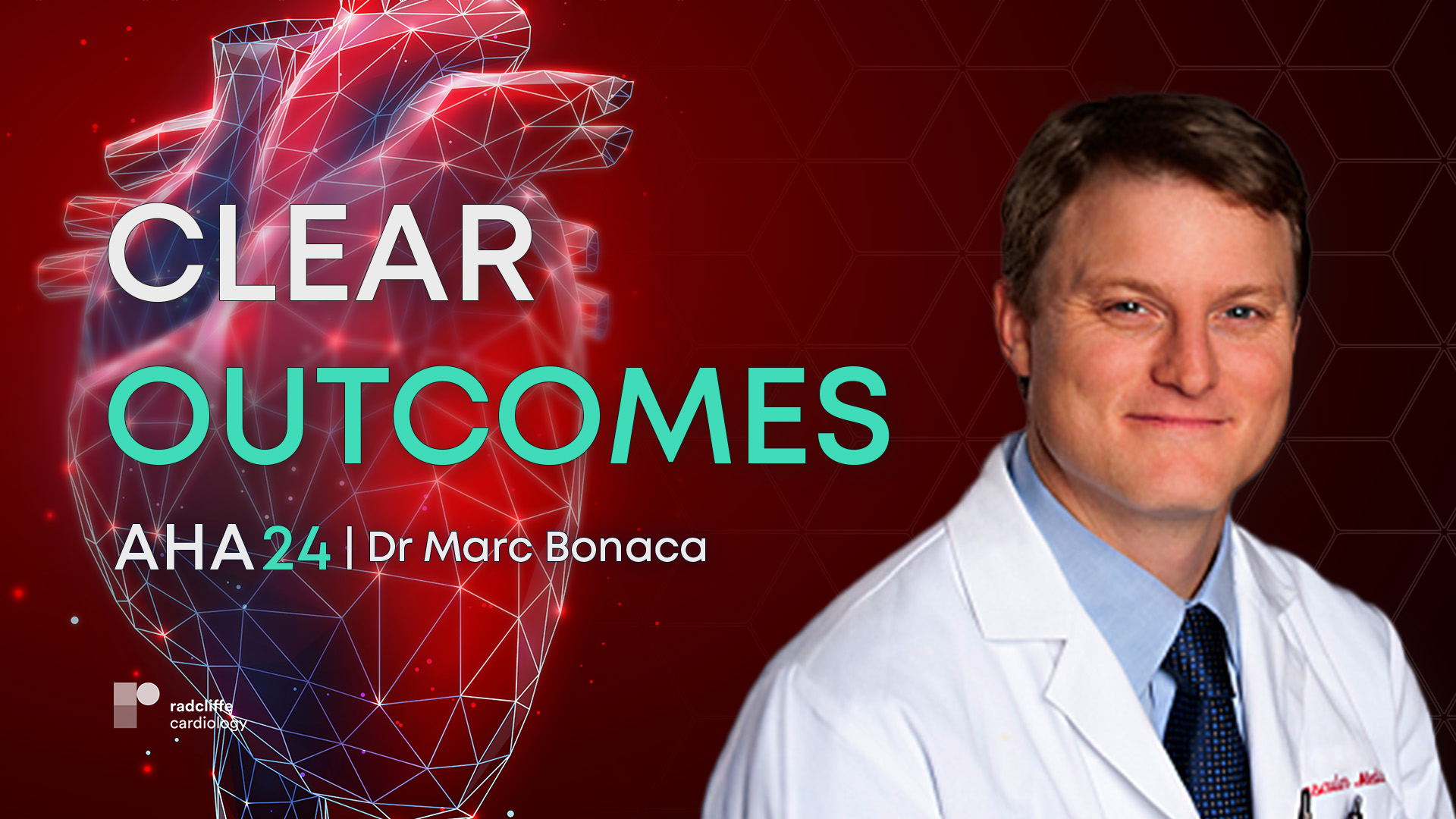 3m 49sPart 3 | Session 10 New Insights from CLEAR OUTCOMES: Bempedoic Acid in Statin-Intolerant Patients with PAD Marc P Bonaca
3m 49sPart 3 | Session 10 New Insights from CLEAR OUTCOMES: Bempedoic Acid in Statin-Intolerant Patients with PAD Marc P Bonaca
-
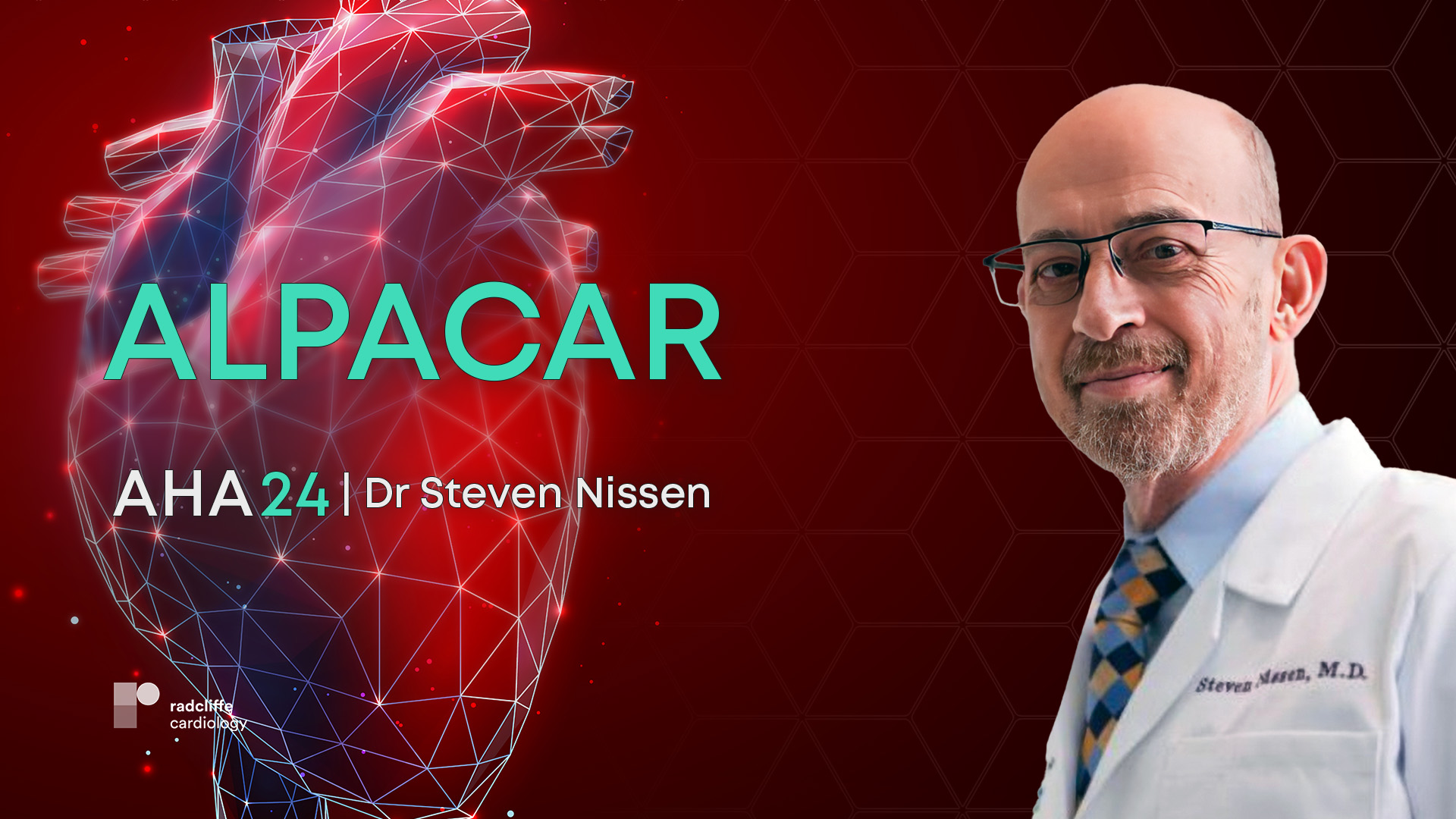 5m 28sPart 3 | Session 11 ALPACAR: Phase 2 Trial of Zerlasiran in High Risk Patients Steven E Nissen
5m 28sPart 3 | Session 11 ALPACAR: Phase 2 Trial of Zerlasiran in High Risk Patients Steven E Nissen
-
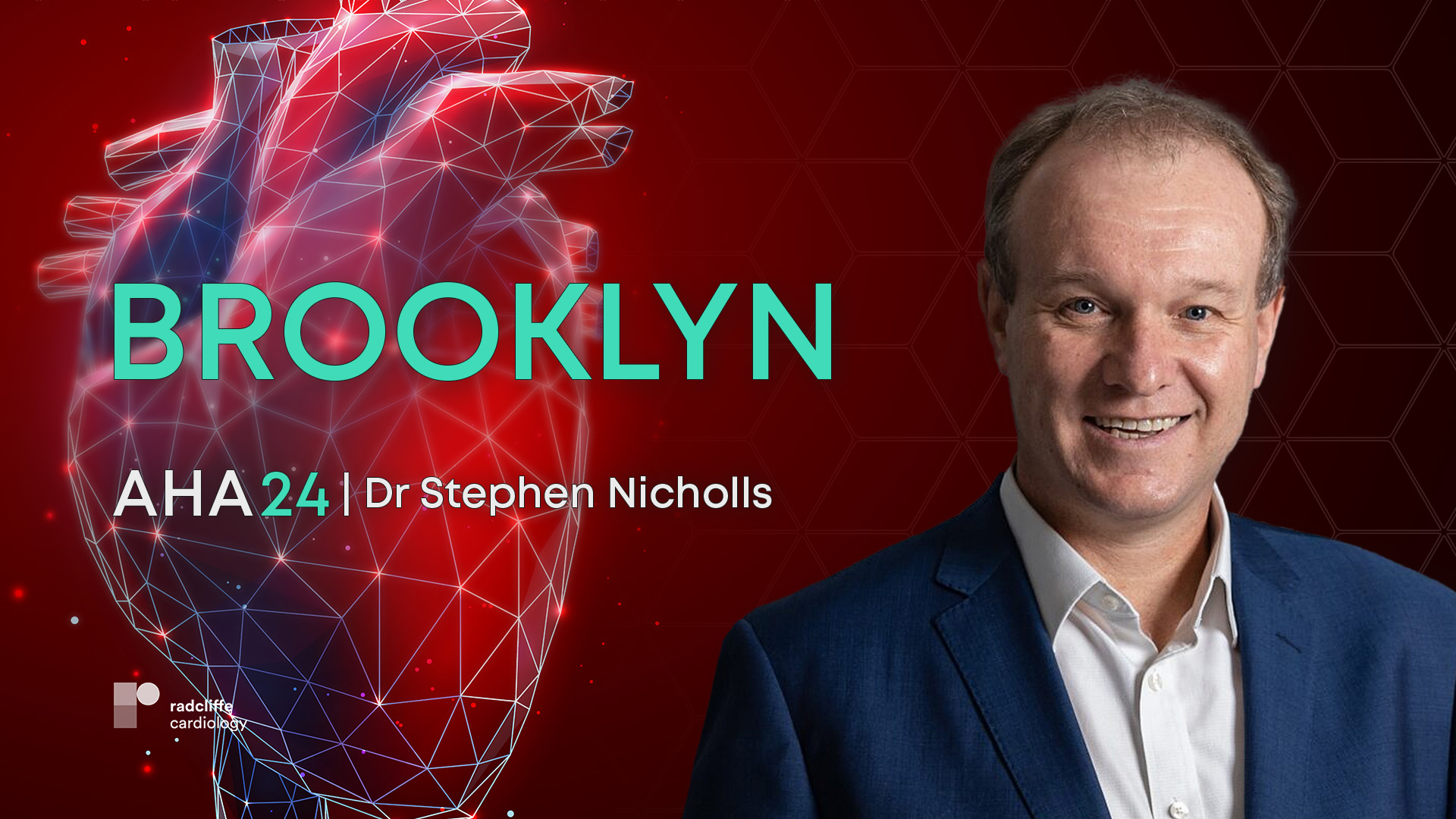 3m 44sPart 3 | Session 12 BROOKLYN: Safety and Efficacy of Obicetrapib in Patients with HeFH Stephen Nicholls
3m 44sPart 3 | Session 12 BROOKLYN: Safety and Efficacy of Obicetrapib in Patients with HeFH Stephen Nicholls
-
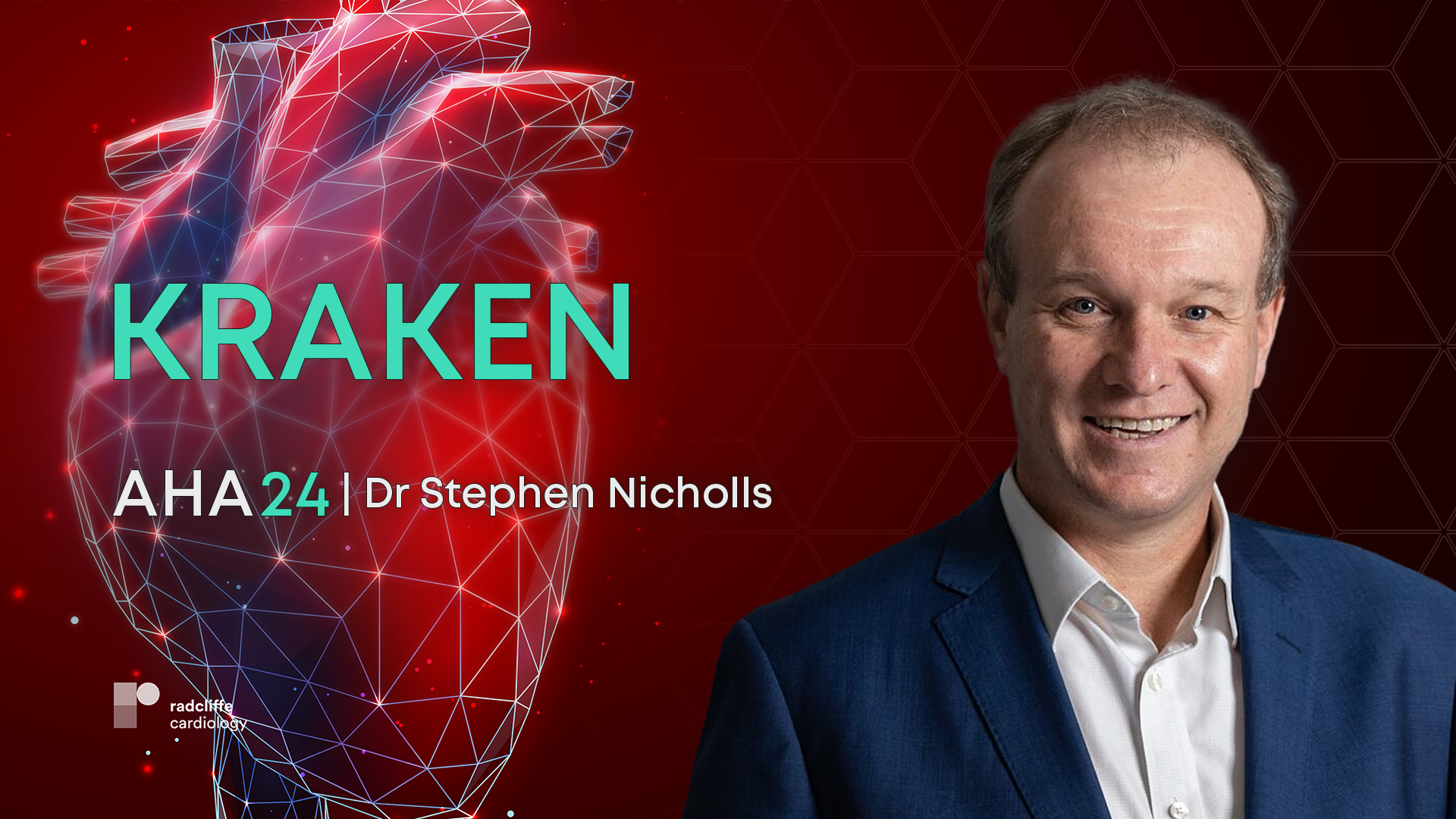 3m 40sPart 3 | Session 13 KRAKEN: Phase 2 Trial of Muvalaplin in High Risk Patients Stephen Nicholls
3m 40sPart 3 | Session 13 KRAKEN: Phase 2 Trial of Muvalaplin in High Risk Patients Stephen Nicholls
Overview
Keep up-to-date with our video collection covering the American Heart Association's 2024 Scientific Sessions in Chicago. For expert insights on the hottest late-breaking and featured science trials, tune in to our collection.
- To catch reviews on the most awaited trials, watch our recurring series View From the ThoraxCenter, hosted by Prof Nicolas Van Mieghem and Dr Joost Daemen (Thoraxcenter, Erasmus MC, Rotterdam, NL).
- Watch out for the Late-Breaker Discussions with Dr Harriette Van Spall for key clinical trial data and its implications for future research.
- Our concise Expert Interviews provide key data, study designs and take-home messages from select faculty.
- Don't miss the key take aways from our Highlights series.
More from this programme
Part 1
View From the Thoraxcenter
Part 2
Late-Breaker Discussions with Dr Harriette Van Spall
Part 3
Expert Interviews
Part 4
Highlights
About the episode
AHA Conference 2024 - Safety and efficacy outcomes comparing left atrial appendage (LAA) closure with the WATCHMAN FLX device to oral anticoagulation (OAC) following atrial fibrillation (AF) catheter ablation.
Dr Oussama Wazni (The Cleveland Clinic Foundation, Ohio, US) joins us onsite at AHA Conference to discuss the findings from OPTION (NCT03795298).
OPTION is a prospective, multi-center, multi-national trial where patients with moderate to high risk of stroke who received AF catheter ablation were randomized to receive either LAA with the WATCHMAN FLX device or market-approved OAC. 1,600 patients were enrolled and were followed up through 36 months. The primary effectiveness endpoint is stroke, all cause death, systemic embolism, and the primary safety endpoint is non-procedural bleeding.
Interview Questions:
1. What is the reasoning behind the OPTION trial?
2. What is the current research landscape for LAA closure following AF ablation?
3. What was the study design and patient population?
4. What were the key findings?
5. What are the take-home messages for practice?
6. What further research is needed in this area, and what are the next steps?
Recorded remotely from Ohio, 2024.
Editors: Yazmin Sadik, Jordan Rance.
Videographers: David Ben-Harosh.
Support: This is an independent interview produced by Arrhythmia Academy.






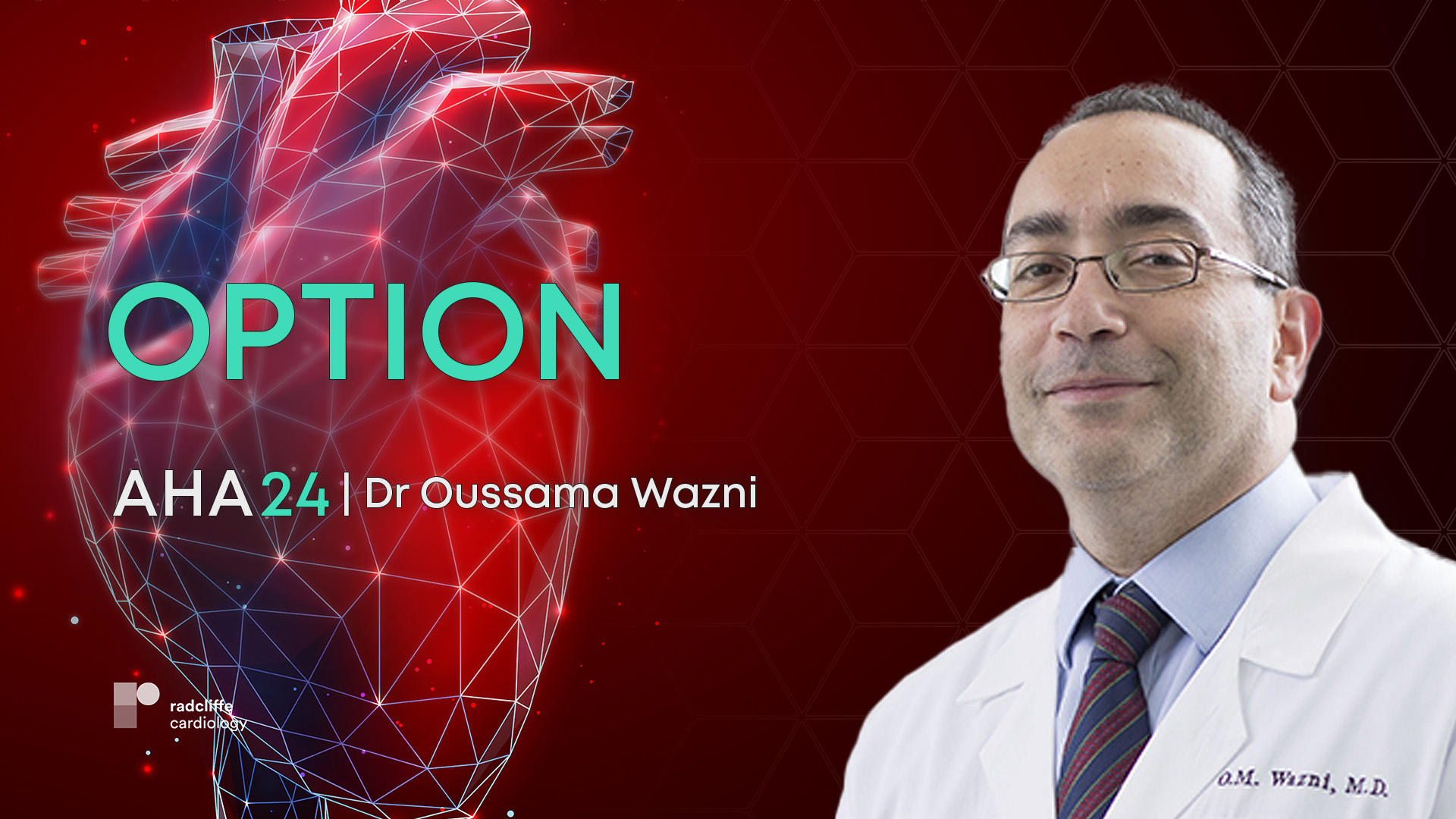
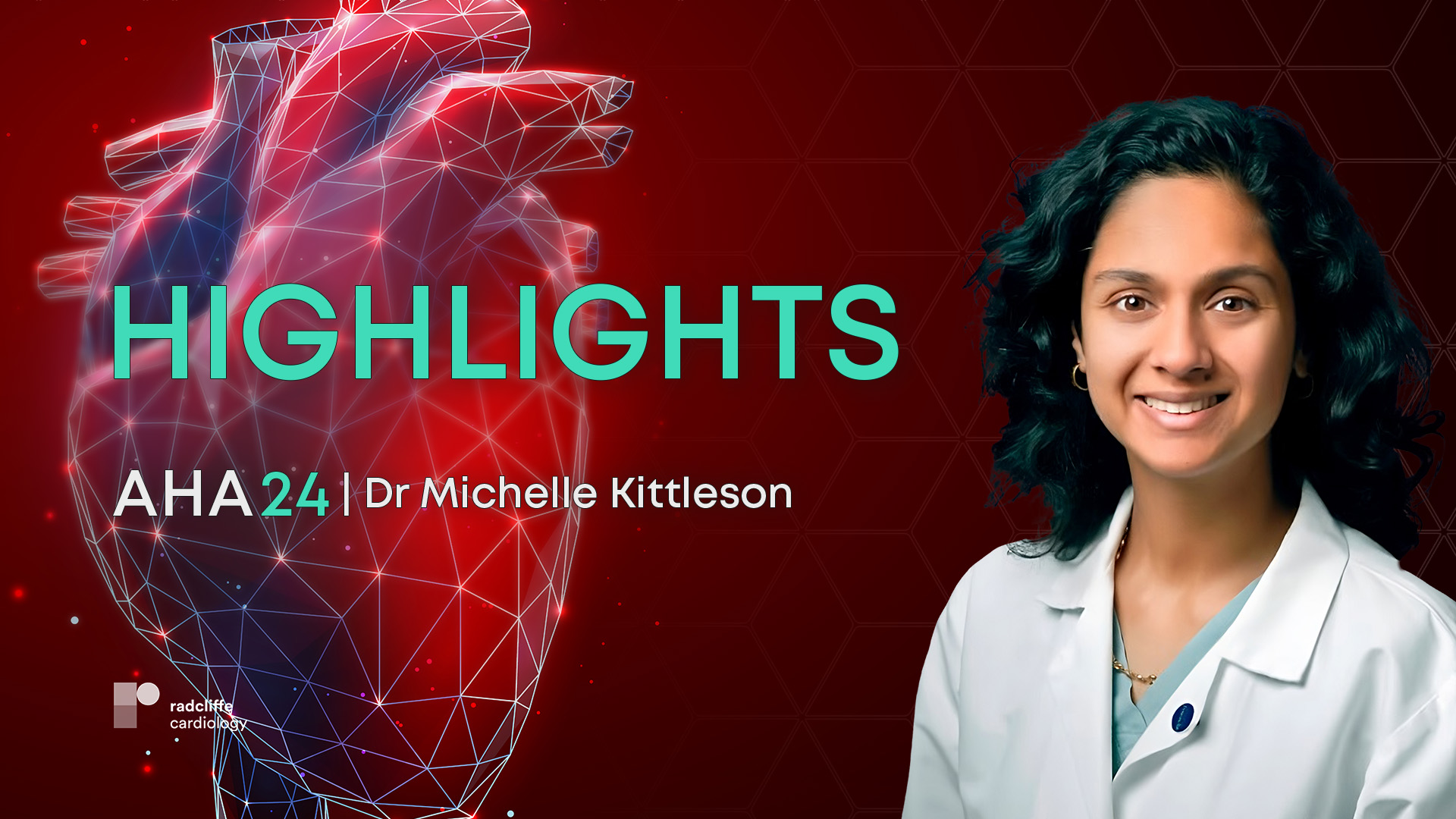
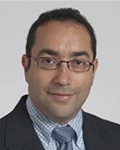
Comments